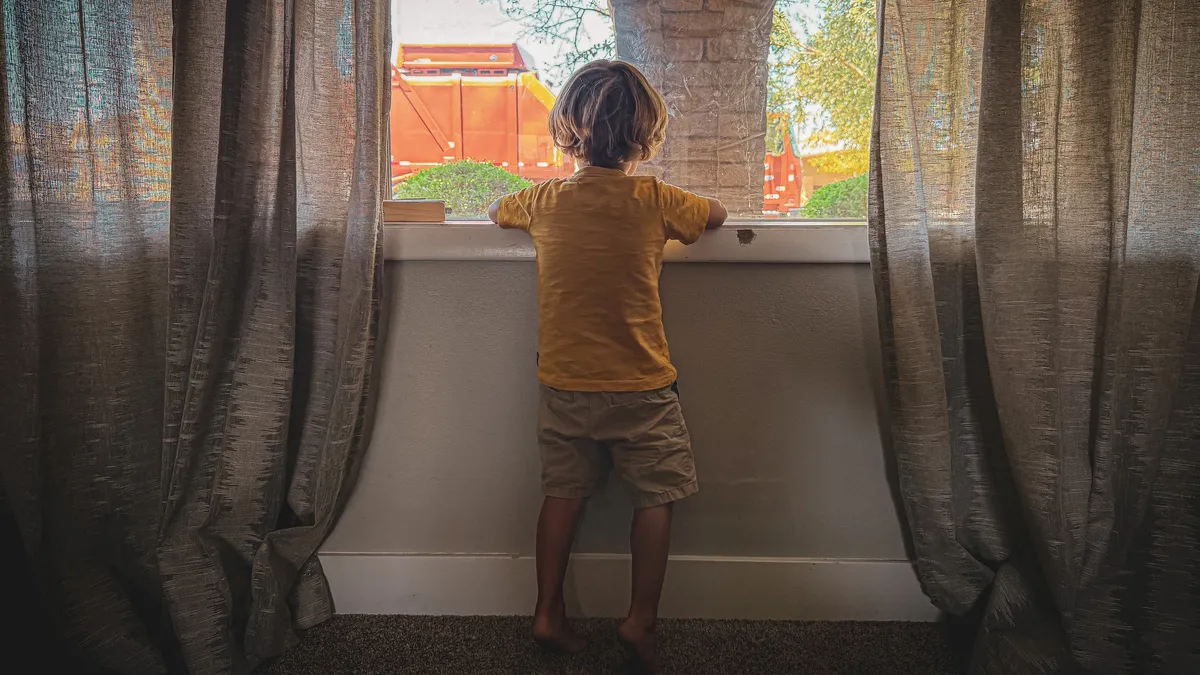i wonder...

My youngest nephew is obsessed with garbage and recycling trucks. I’ve been watching him a few days a week, one of them being Thursday – the weekly recycling day. On Thursday morning, our selected activity (usually playing with toy garbage trucks and front-end loaders) must be done near the front of the house, lest we miss an opportunity to supervise the bin collection. When we hear the rumble of the truck approaching, he runs to the front window, stands on the tips of his toes, and provides me with a detailed narrative of everything that is happening. He is unbelievably astute in matters of trash and recycling. Despite his nearly encyclopedic knowledge of this seemingly mundane process, he always posits as many questions as observations. He is intent on knowing everything there is to know about recycling trucks and I have found that I am unable to bluff my way through providing responses to his questions. Vague answers are met with skepticism, and “No. I don’t think so.” The level of inquiry and wonder is amazing.
If we are not cognizant, somewhere along the way we lose this kind of intense interest. Wonder that generates more questions than answers. We become bored with the “everyday” and sometimes even the extraordinary.
As a former educator, I suspect some of this curiosity is “schooled” out of us. No time for investigation or more questions, we have to move on to the next topic. We are standards and data driven. With budget shortages and a less than healthy focus on standardized test results, schools have largely been forced to abandon enthusiastic support for the arts, music, and play – all things that support student creativity. I am not blaming schools. They are a reflection of societal demands and must bend to the will of their constituents, the state department of education, and the allocated budget.
While educational pedagogy may play a role in a diminished fascination with what we observe, I believe technology has had a significant impact on our diminished lack of intrigue about the world around us. When we are not certain about something, we use our devices to look it up. What does AI, Wikipedia, or Google have to say about this matter? We no longer allow thoughts and questions to amble around in our brains. There is no significant space between questions and ensuing digital answers to allow our mind to generate its own ideas, develop independent solutions, or dig deep in the recesses of the cerebral cortex to recall prior learning.
I’m thinking we could all benefit by having a bit more space between the “I wonder” moment, and the “Google says” response. It would be good for our brains, creativity, and engagement with the world. My nephew would encourage you to begin with considering how recycling trucks work.
I wonder...